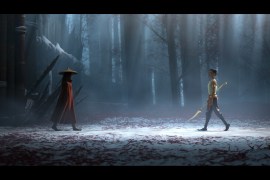25 best boat movies ever
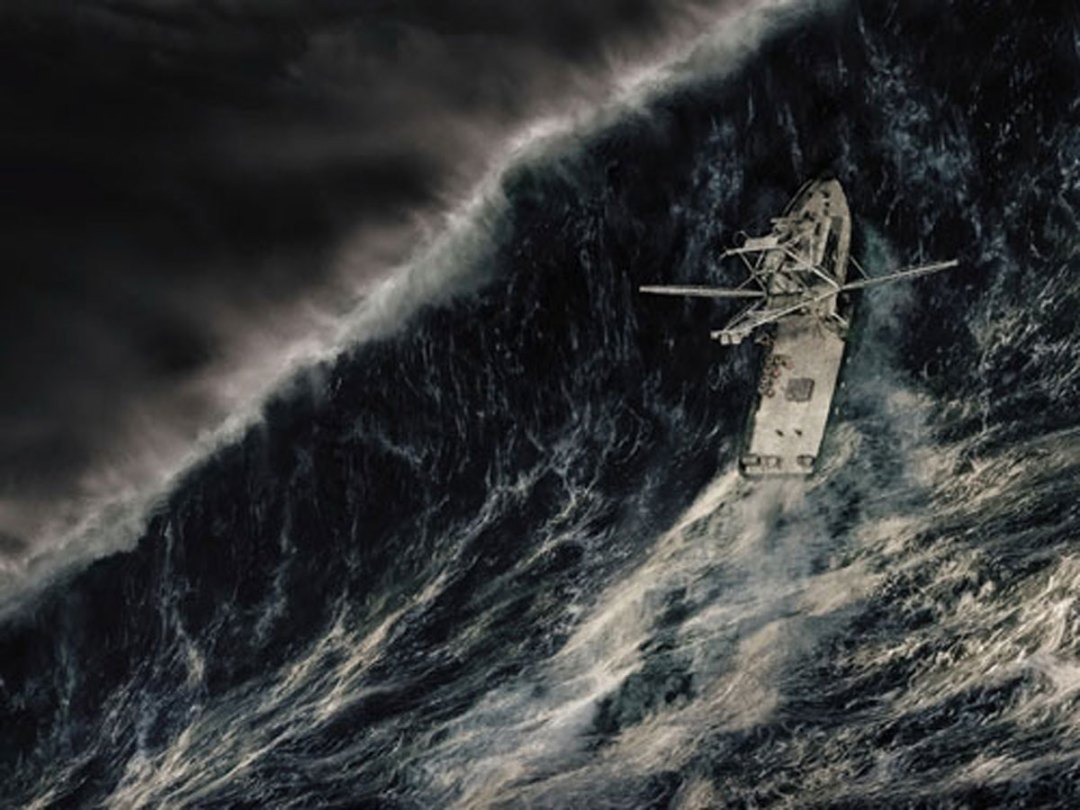
Boats aren’t just good for ferrying people from one mass of land to another or for catching fish, they can provide the backdrop for great films, too. Here are 25 best boat movies ever, in no particular order.
Titanic (1997)
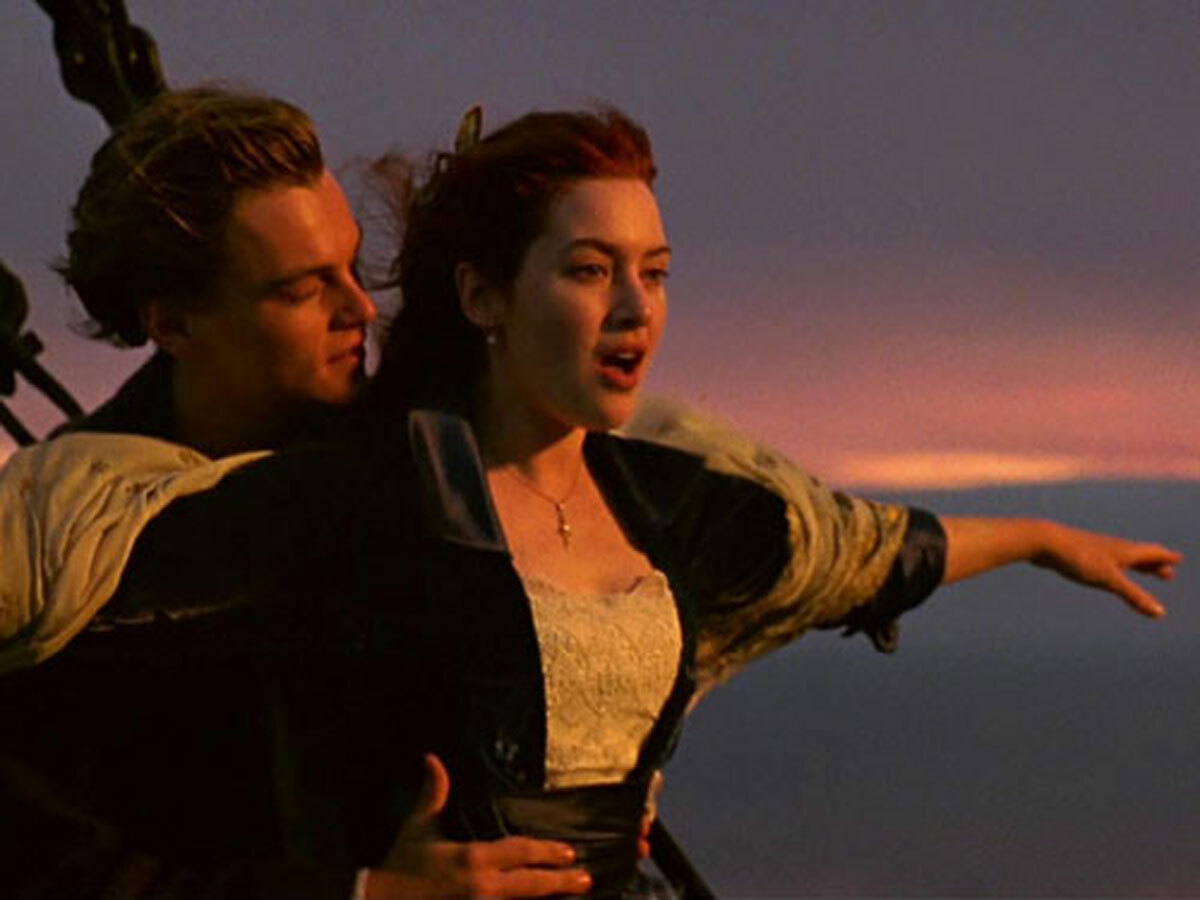
“Jack, this is where we first met.” Well, of all the stupid things to say when your ticket to America starts looking like a one-way fare to a watery grave. Even so, James Cameron’s retelling of the historic Titanic disaster as an epic romance (with Leonardo DiCaprio and Kate Winslet at Cupid’s helm) turned out to be a big-budget awards magnet and it’s hard not to be impressed by the sheer scale of the production.
Master and Commander: The Far Side of the World (2003)
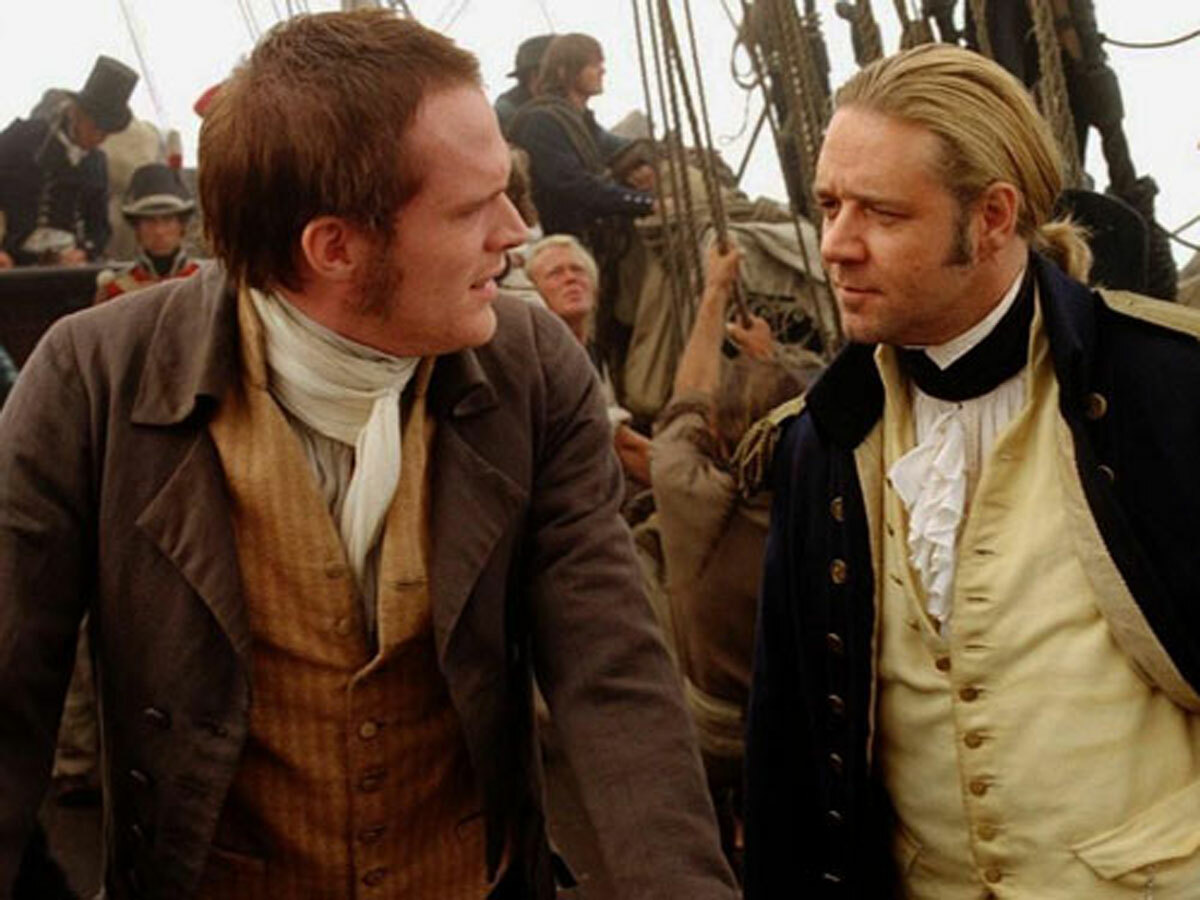
Peter Weir’s seafaring epic should have made off with a treasure chest of Oscars, but for one pesky detail – it came out in the same year as Peter Jackson’s Lord of the Rings: The Return of the King. None the less, it flies the flag as one of the best boat movies ever made, with Russell Crowe and Paul Bettany leading a stellar crew through stormy waters. A long-expected sequel is yet to materialise.
The Hunt for Red October (1990)
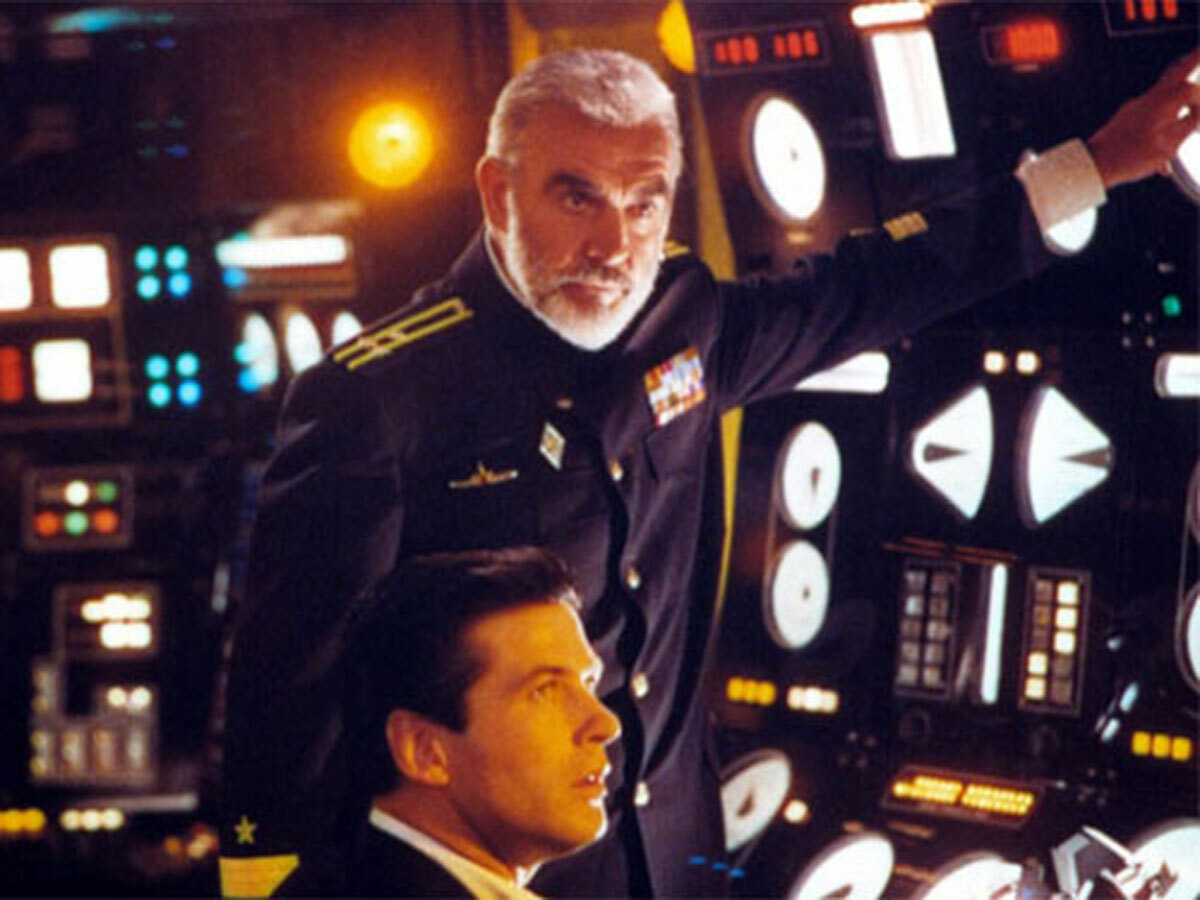
Sean Connery goes off-mission in an undetectable Soviet sub – the titular Red October – causing the CIA’s Alec Baldwin to give chase… in person. The Russians are (figuratively) on board with the hunt, but things hot up below deck when Baldwin (literally) joins the Red October and some unlikely alliances are formed. A masterful piece of Tom Clancy-penned sub-aquatic suspense.
The Boat (1921)
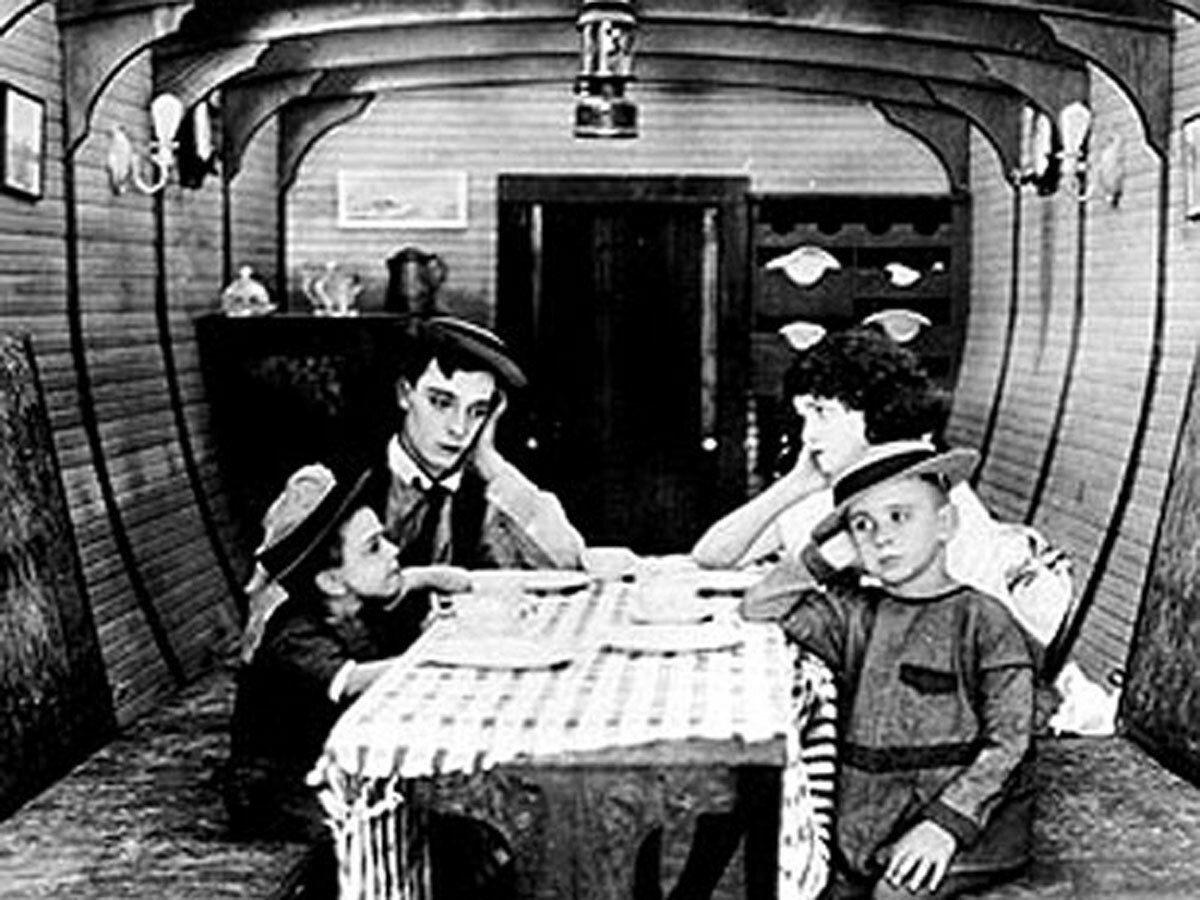
Artful out-to-sea comedy from Buster Keaton, who builds a boat in his house without planning how to get it out. The ensuing project to take said vessel (plus wife and two Keaton juniors) to the water leaves the family homeless, carless and barely afloat in a storm. What’s the joke? Damfino. (Yeah, you probably need to watch this 25-minutes short to get that.)
The Perfect Storm (2000)
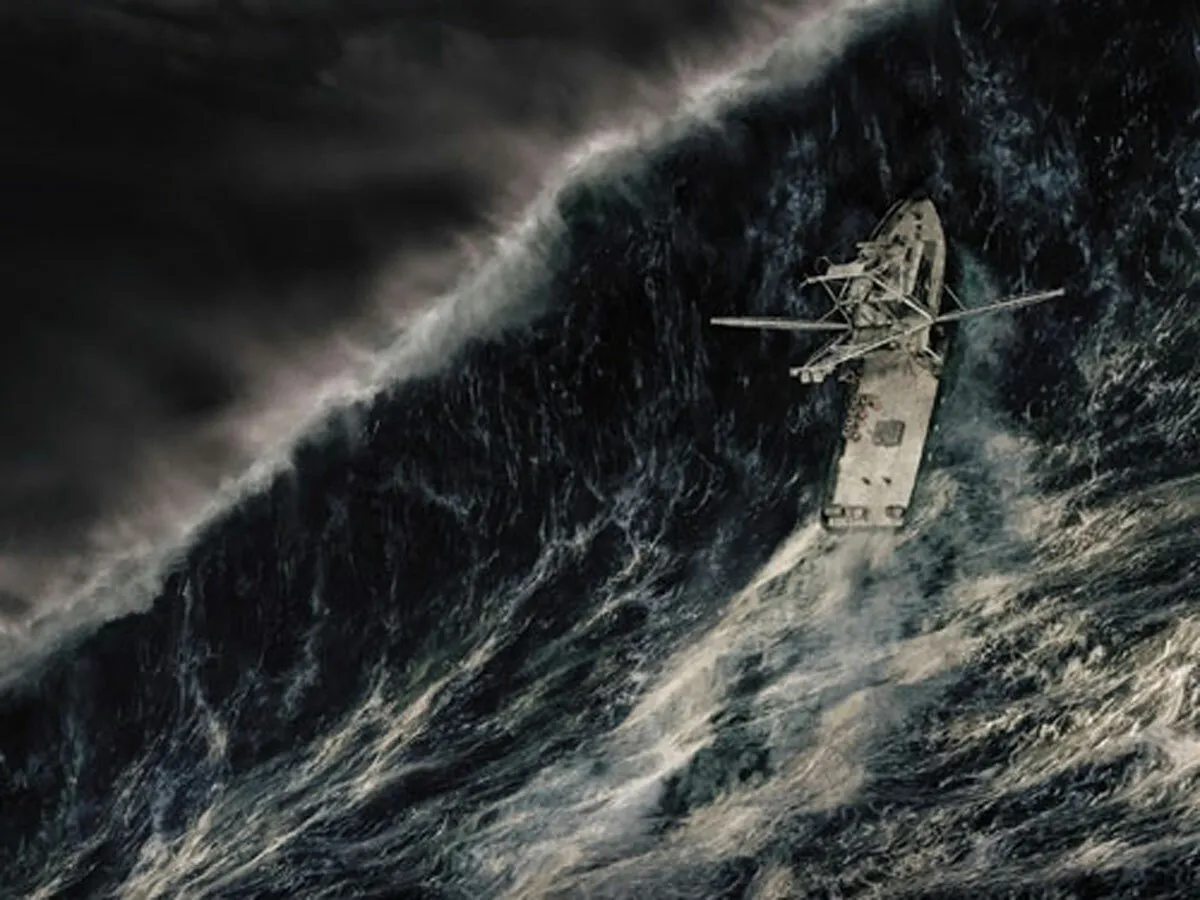
A nice spot of fishing, this ain’t. George Clooney leads a crew of fishermen, including Mark Wahlberg, on a late season deep sea rod-and-line trip. But things turn nasty when, as they retreat for the shoreline, their boat, the Andrea Gail, gets caught in gale force winds, tempestuous seas and all sorts of bother. Based on a true story, The Perfect Storm’s ominous reviews were stilled by box office success.
Mutiny on the Bounty (1962)
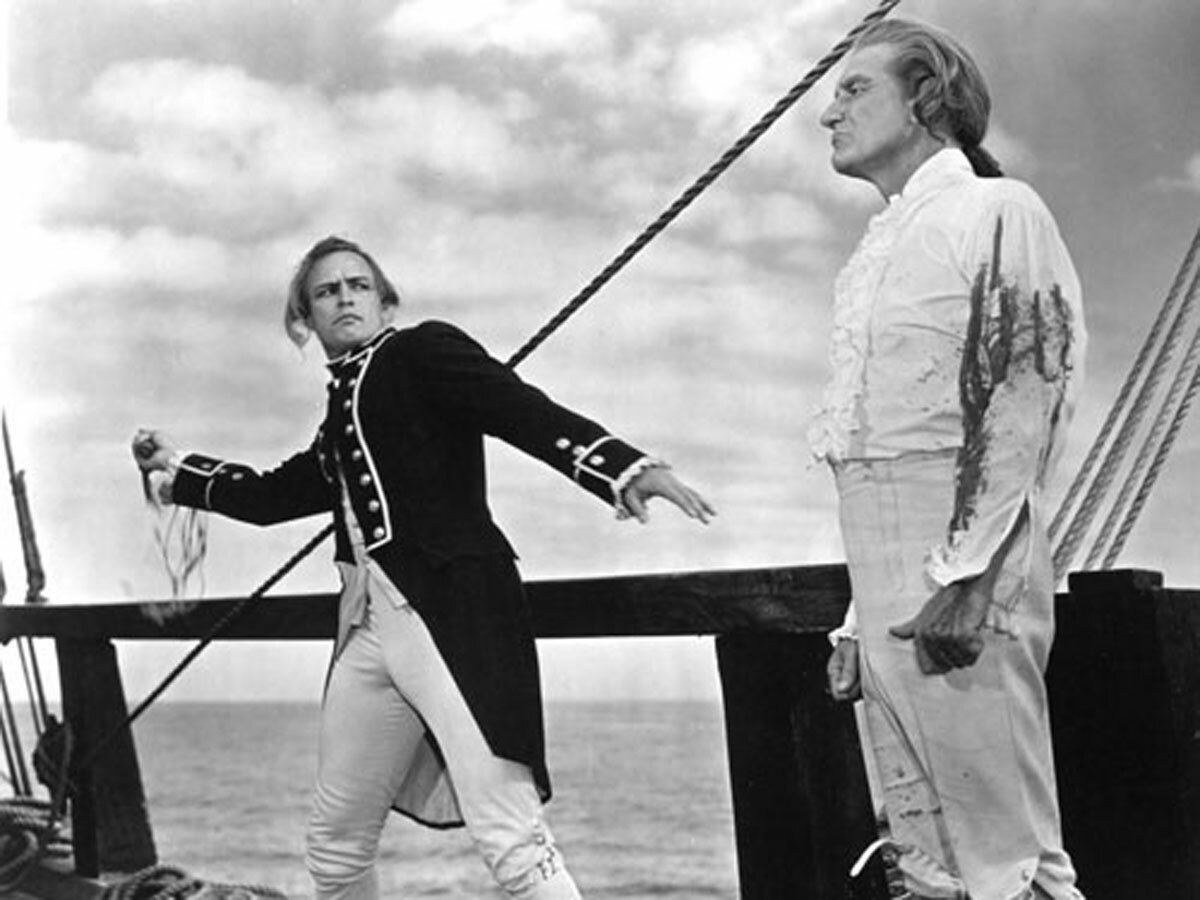
The plot’s in the title, but Mutiny on the Bounty could also have been called Who Moved My Cheese (On My Boat). Marlon Brando and Richard Harris have their patience tested first by their captain’s light-fingered approach to cheddar, but things turn uglier as Captain Bligh (Trevor Howard) drives his crew with increasingly uncompromising fervour. In reality, it was Brando’s on-set antics that nearly caused a mutiny.
Pirates of the Caribbean: The Curse of the Black Pearl (2003)
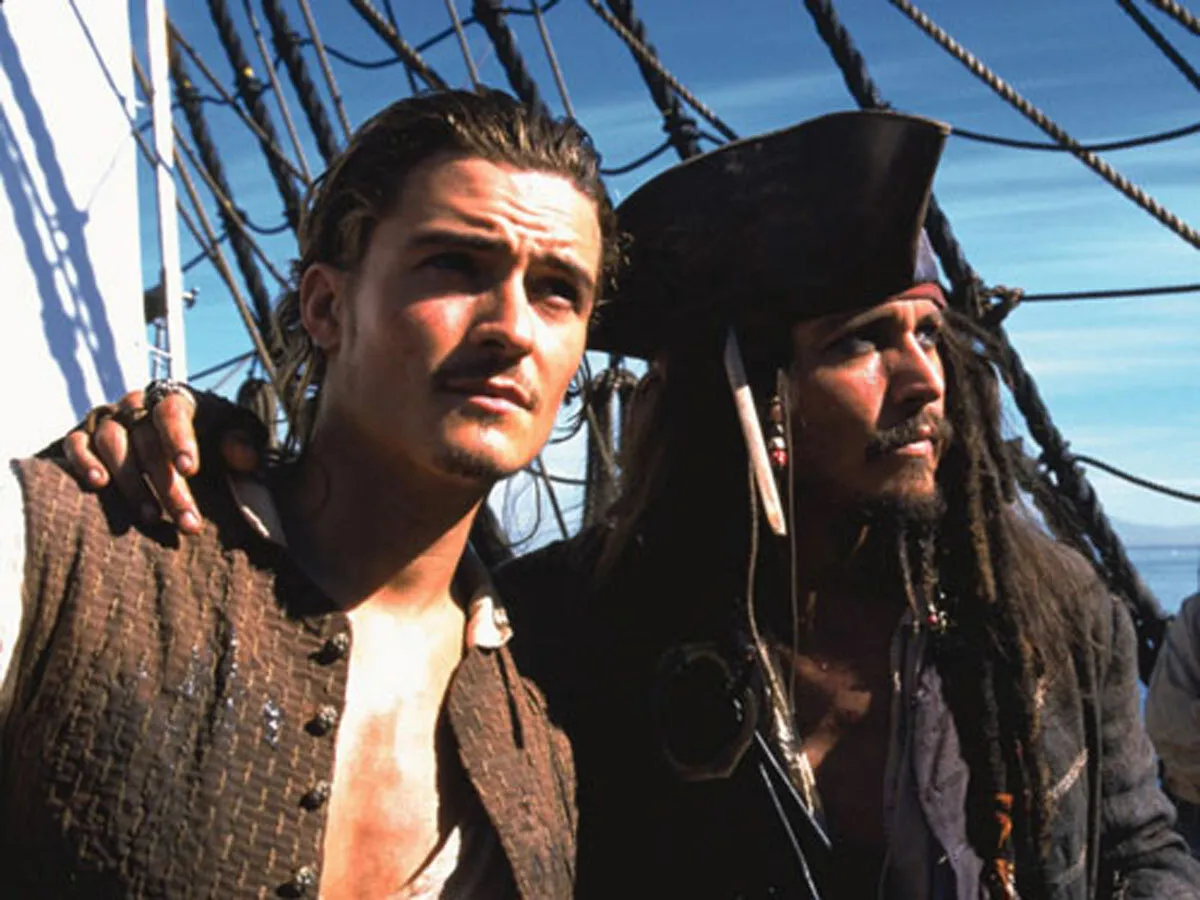
Johnny Depp threw away the Errol Flynn book of swashbuckling pirates, instead borrowing heavily from ragged Rolling Stones axeman Keith Richards for the role of Captain Jack Sparrow. Despite his scene stealing antics, the cast was peppered with talent and Orlando Bloom, Keira Knightley and Geoffrey Rush also turned in ace performances to make Pirates of the Caribbean’s first outing one of the finest pirate movies ever made. Three (disappointing) sequels followed.
The African Queen (1951)
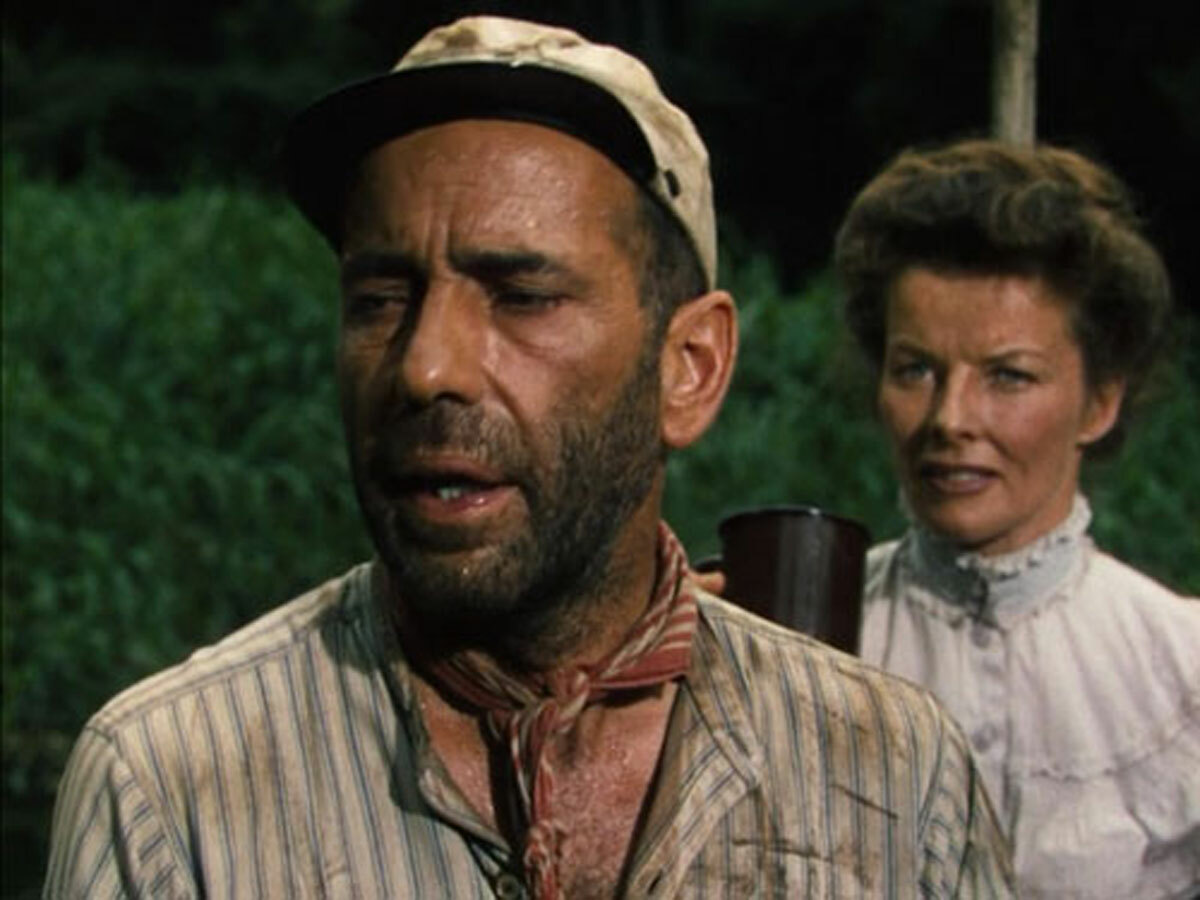
As war breaks out, Humphrey Bogart – a coarse delivery man – rescues prim Methodist missionary Katherine Hepburn and the pair make an unlikely alliance aboard the African Queen. Bogart won an Oscar for his steer on the lead role, though the script had to undergo a rewrite after it transpired he couldn’t pull off the cockney accent the part originally required.
The Abyss (1989)
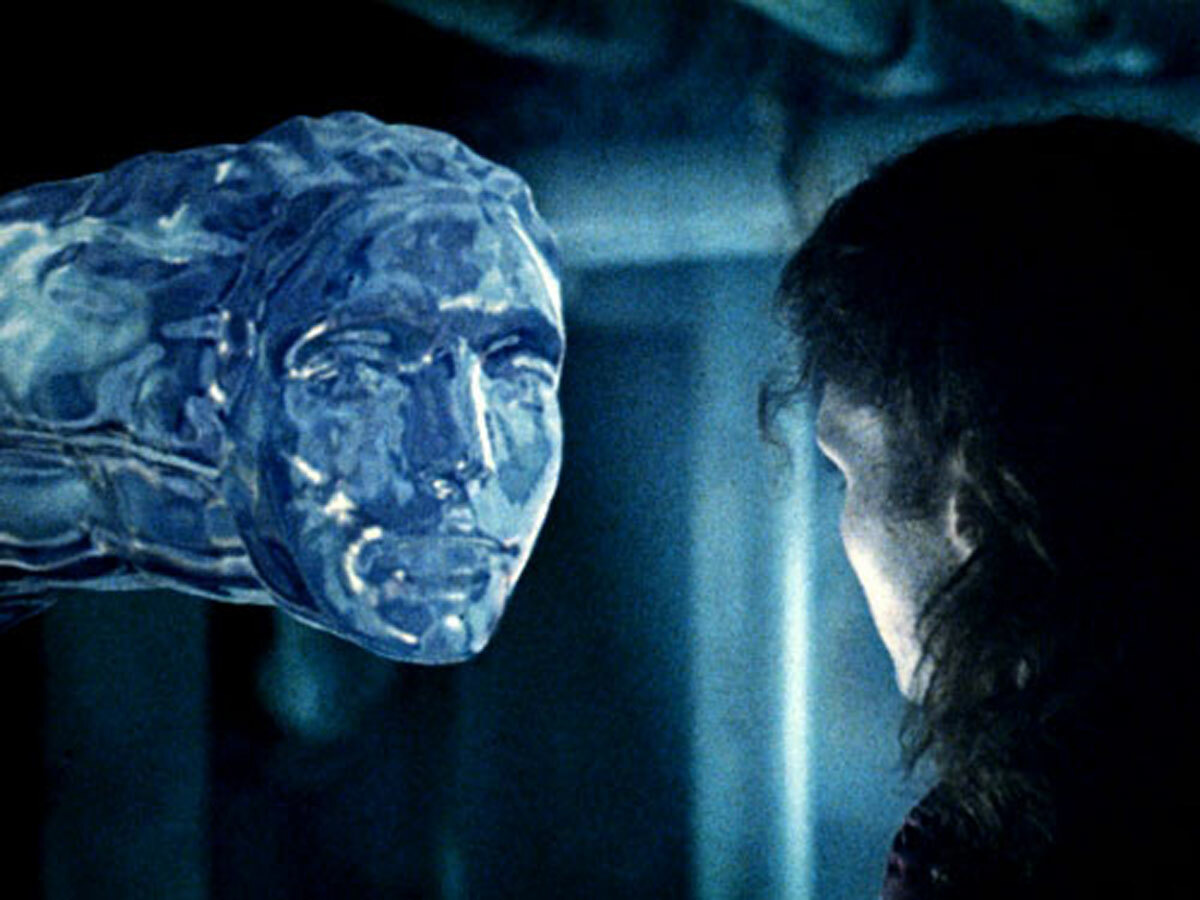
Although The Abyss is perhaps more at home in our list of the 25 best alien movies ever, it does have lots of boats in it, and we can’t forgo the opportunity to include a bit of sea-borne sci-fi. Fun fact: James Cameron’s original water movie was shot not in the sea, but in an unfinished nuclear power station’s containment building.
The Poseidon Adventure (1972)
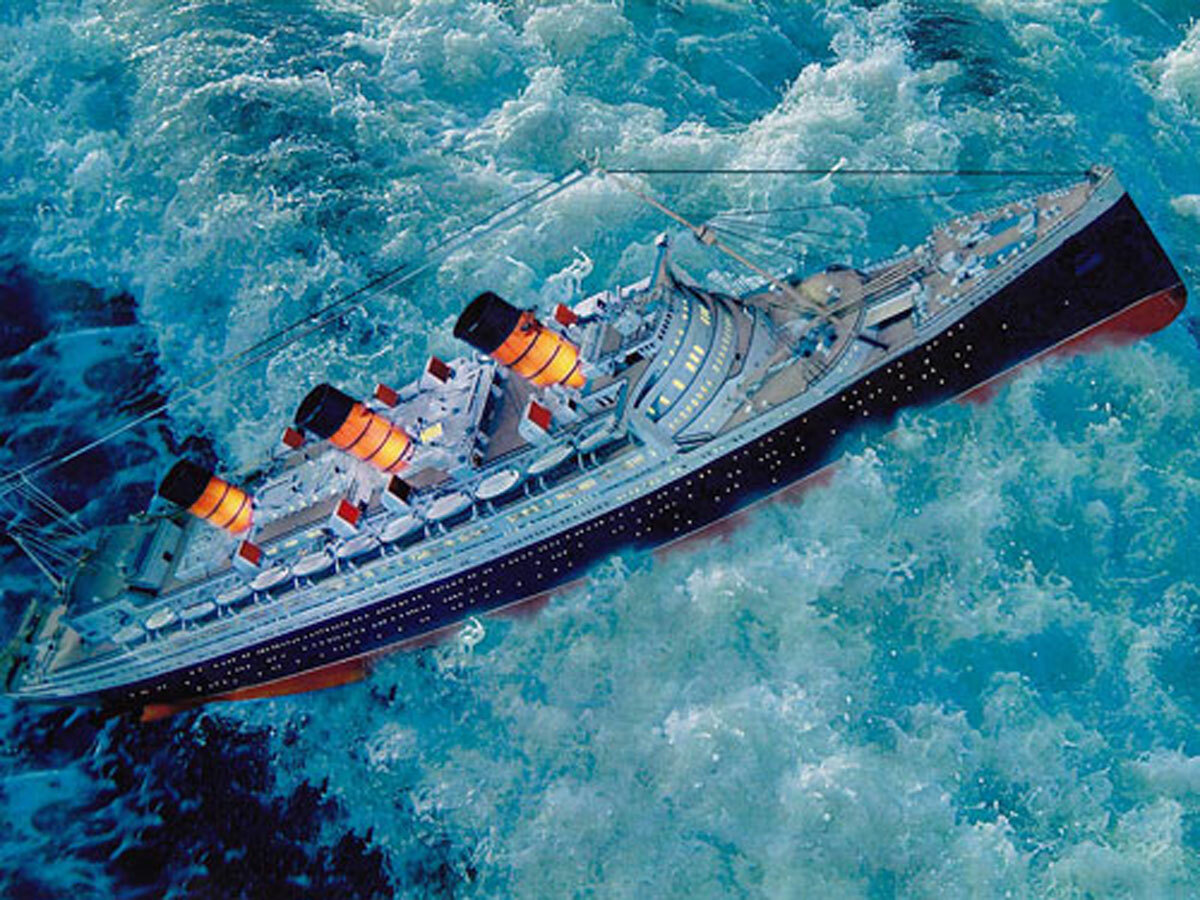
Airport, The Towering Inferno, Earthquake… the early 1970s were rich with star-studded disaster movies. The Poseidon Adventure is the icing on that suspenseful cake, with the SS Poseidon running into suitably troubled waters. On board, the Rev Frank Scott (Gene Hackman) asks God to help him deliver survivors into the safe hands of the rescue party. Who he holds accountable for the unfavourable sailing conditions is never properly addressed.
Das Boot (1981)
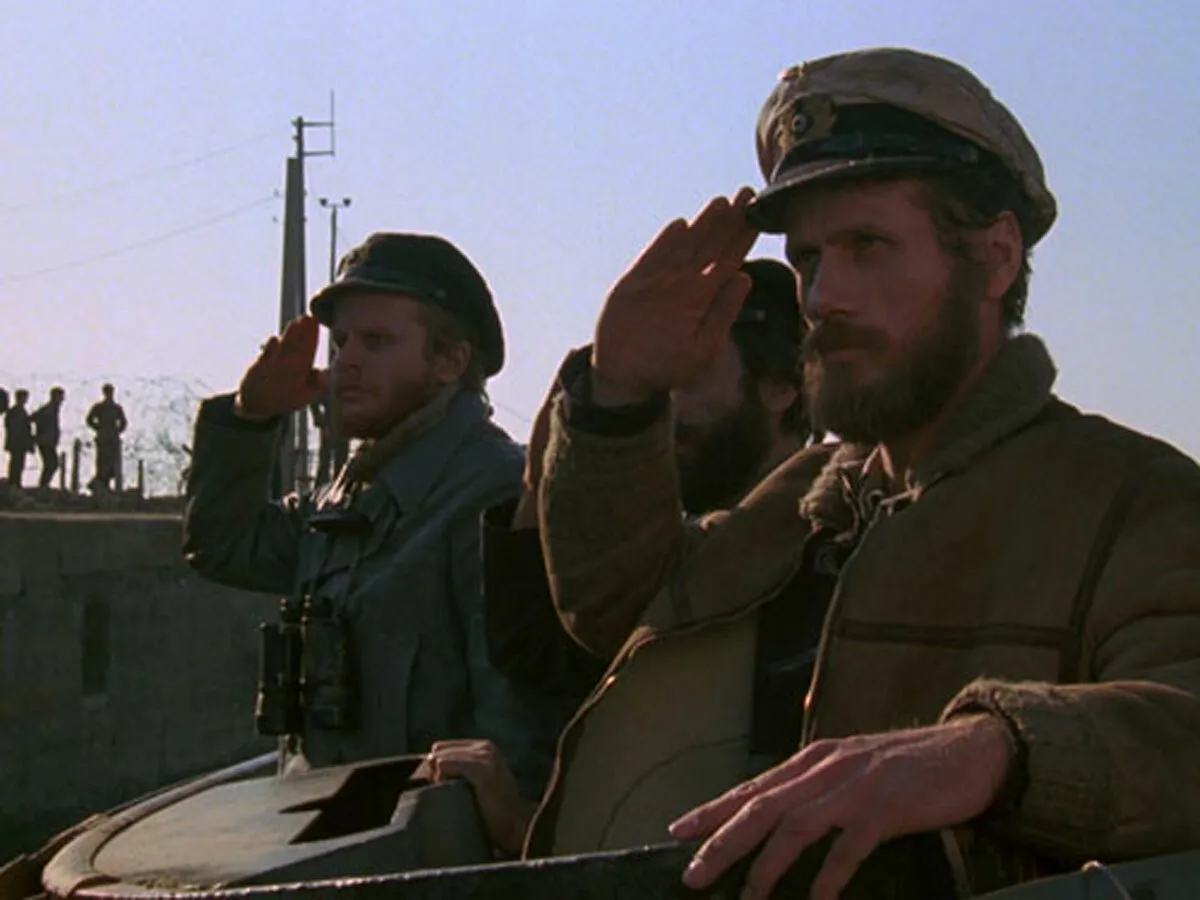
The ironically dry title (The Boat, in English) belies the epic wetness of this WWII submarine movie, credited with some of the most claustrophic cinematography ever committed to film. Robert Redford and Paul Newman were considered for the lead role, but plans to bring in an American director and star were ditched in favour of an all-German cast directed by Wolfgang Petersen.
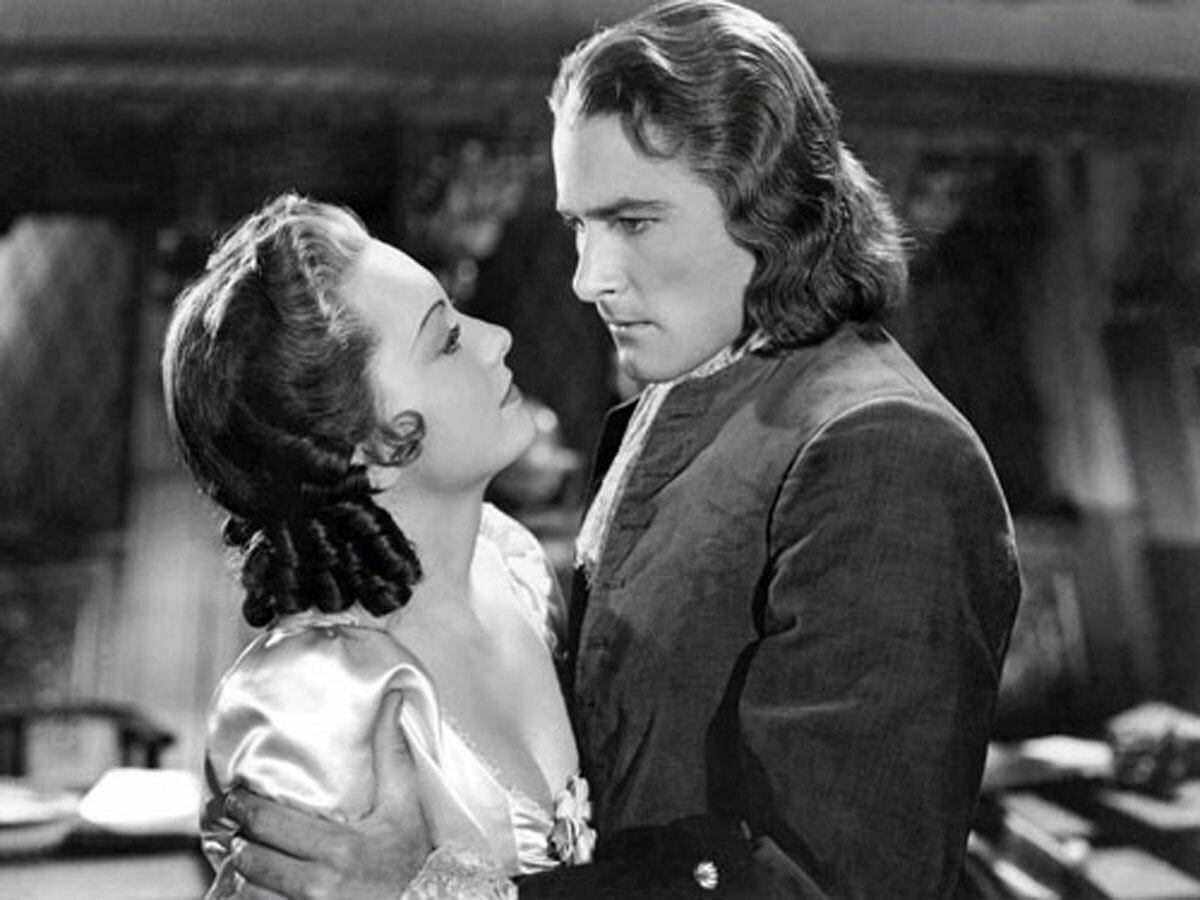
Errol Flynn stars as the eponymous Peter Blood, a man with a penchant (funnily enough) for swashbuckling antics. Sold into slavery and at his wit’s end, Blood must plot his escape and avenge his capturer. And get laid, obviously. Boats, naturally, are crucial to the ensuing plot, as they were in many of our other 25 best pirate movies ever.
The Philadelphia Experiment (1984)
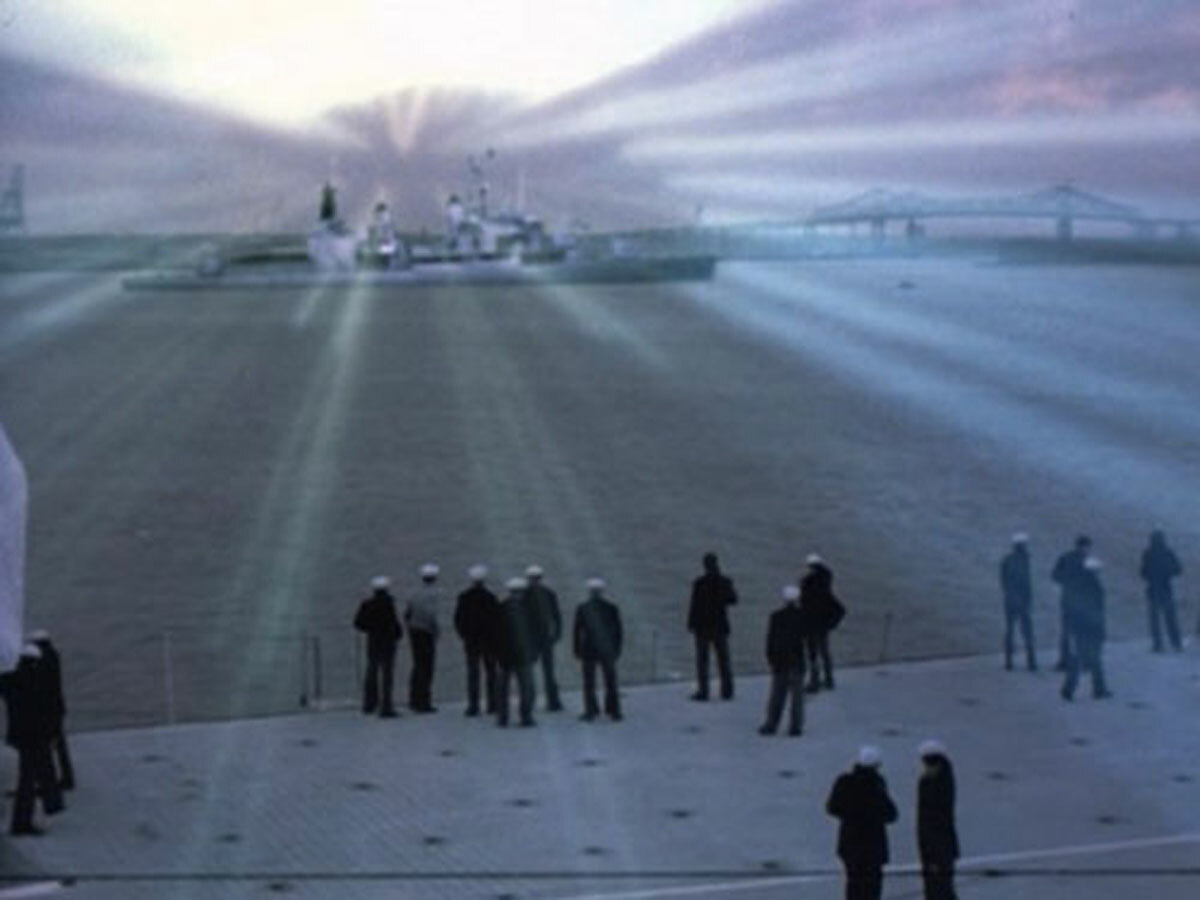
There’s not much Hollywood hasn’t thought of through the years, and if you thought boats and time travel hadn’t been successfully combined, you haven’t watched The Philadelphia Experiment. Disappearing boats are one thing, but we can’t help feeling the protagonists’ disbelief (on arriving from 1944) that Ronald Reagan is president was shared by plenty of non-time travellers in 1984.
Moby Dick (1956)
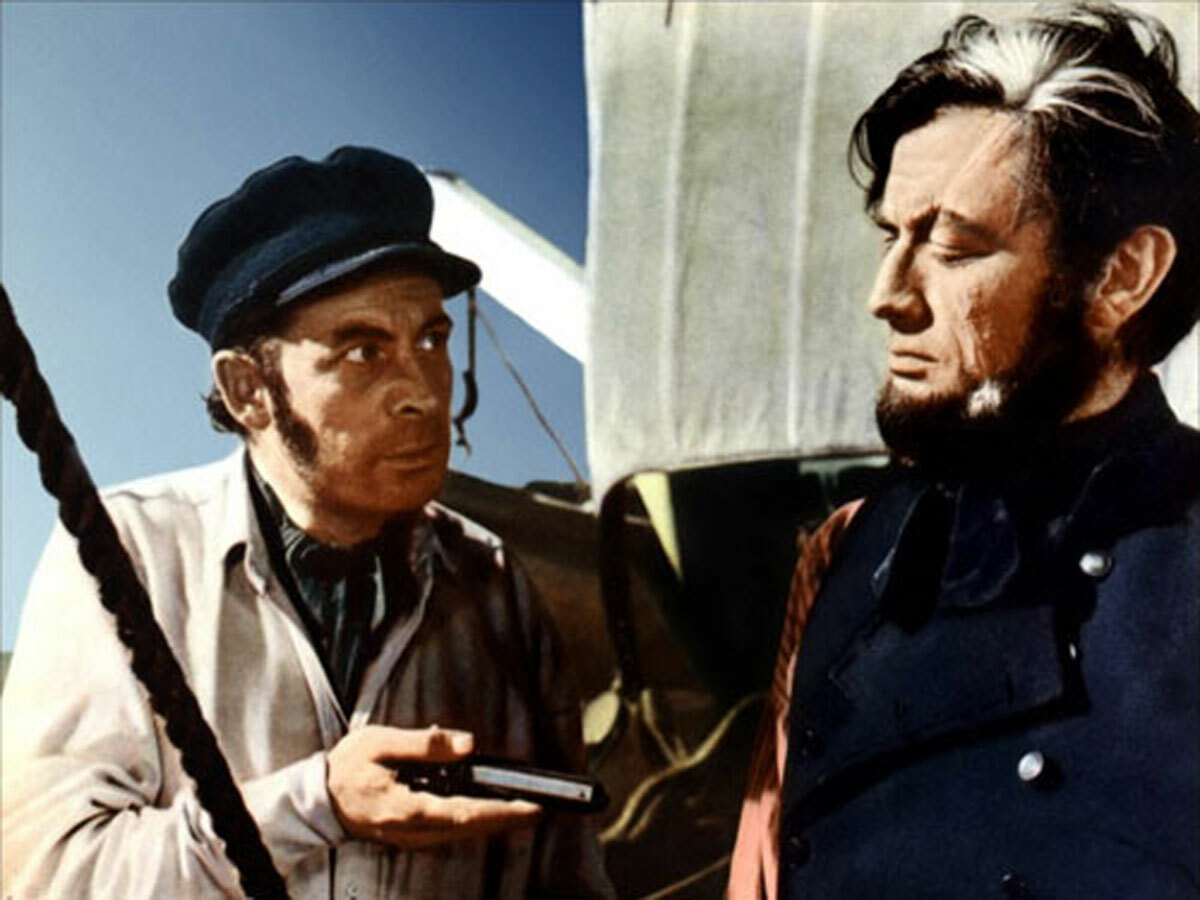
Sci-fi don Ray Bradbury was drafted in to pen a screen adaptation of Herman Melville’s novel, with Gregory Peck starring as Captain Ahab. Everyone knows the most famous non-Biblical whale story of all time, but not everyone knows Moby Dick was played in the film by a 12 tonne, 75ft bit of rubber specially made by Dunlop in Stoke-on-Trent. He had an appetite for 80 drums of compressed air and was lost at sea during filming. Pity the fisherman who finds him.
Knife in the Water (1962)
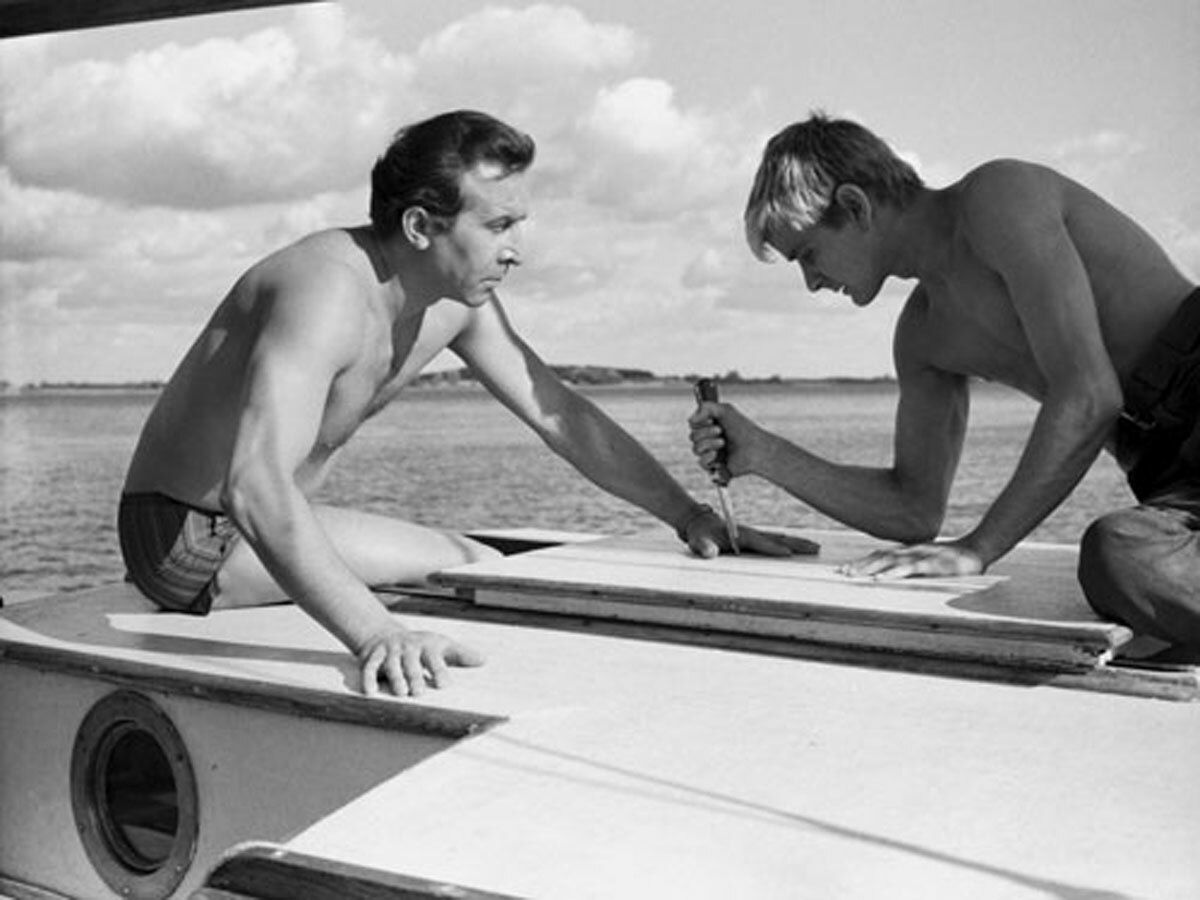
The movies have always taken a dim view of the hitchhiking fraternity, and Roman Polanski’s feature debut is no exception. It’s a taut drama with a cast of three, and a cautionary tale about taking strangers on sailing trips. Especially if you don’t trust your wife.
1492: Conquest of Paradise (1992)
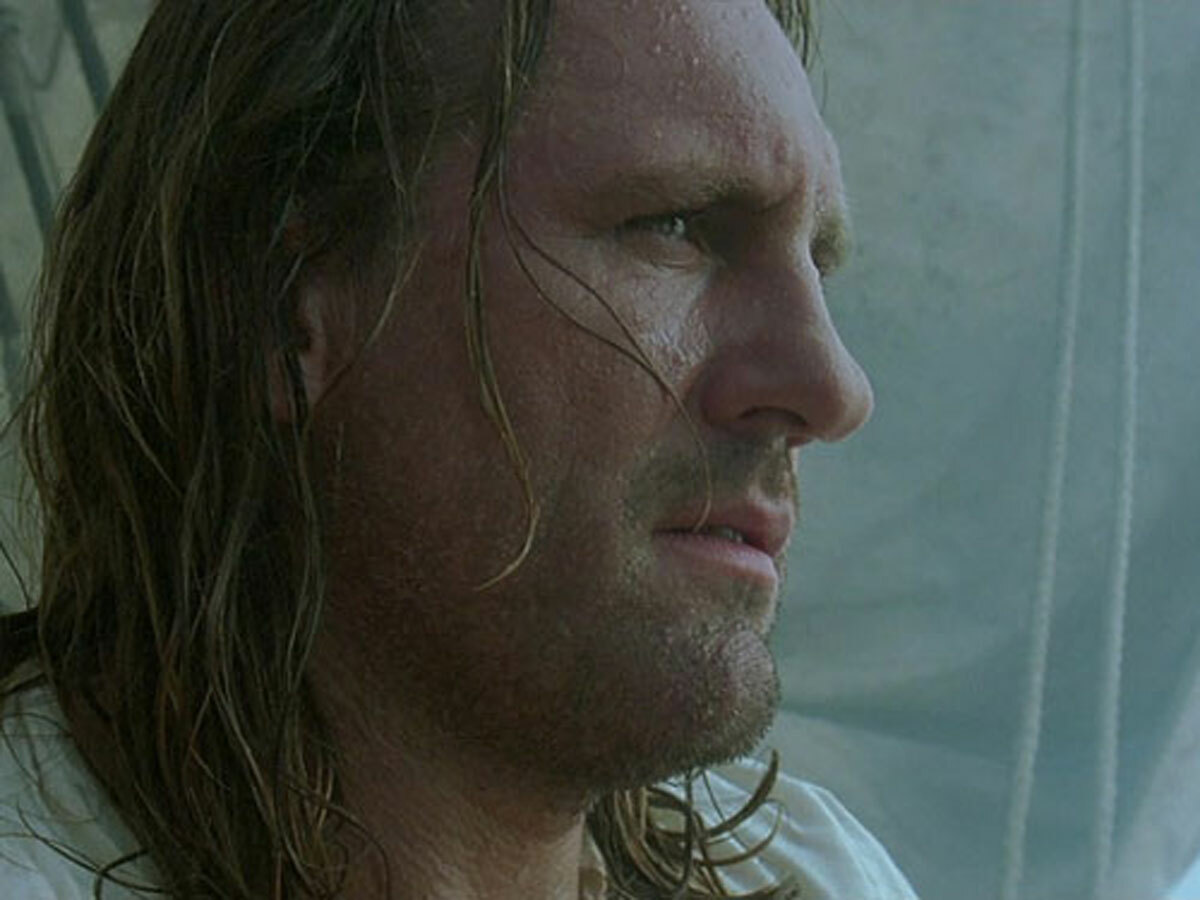
Christopher Columbus sets sail to discover… well, he doesn’t know. That’s sort of the point of Ridley Scott’s discovery movie, in which Gerard Depardieu plays the New World explorer and Sigourney Weaver puts in a turn as Queen Isabella I. It flopped at the box office, but the central motif of the soundtrack was adopted by the Portuguese Socialist Party, which has kept it ever since.
Cape Fear (1991)
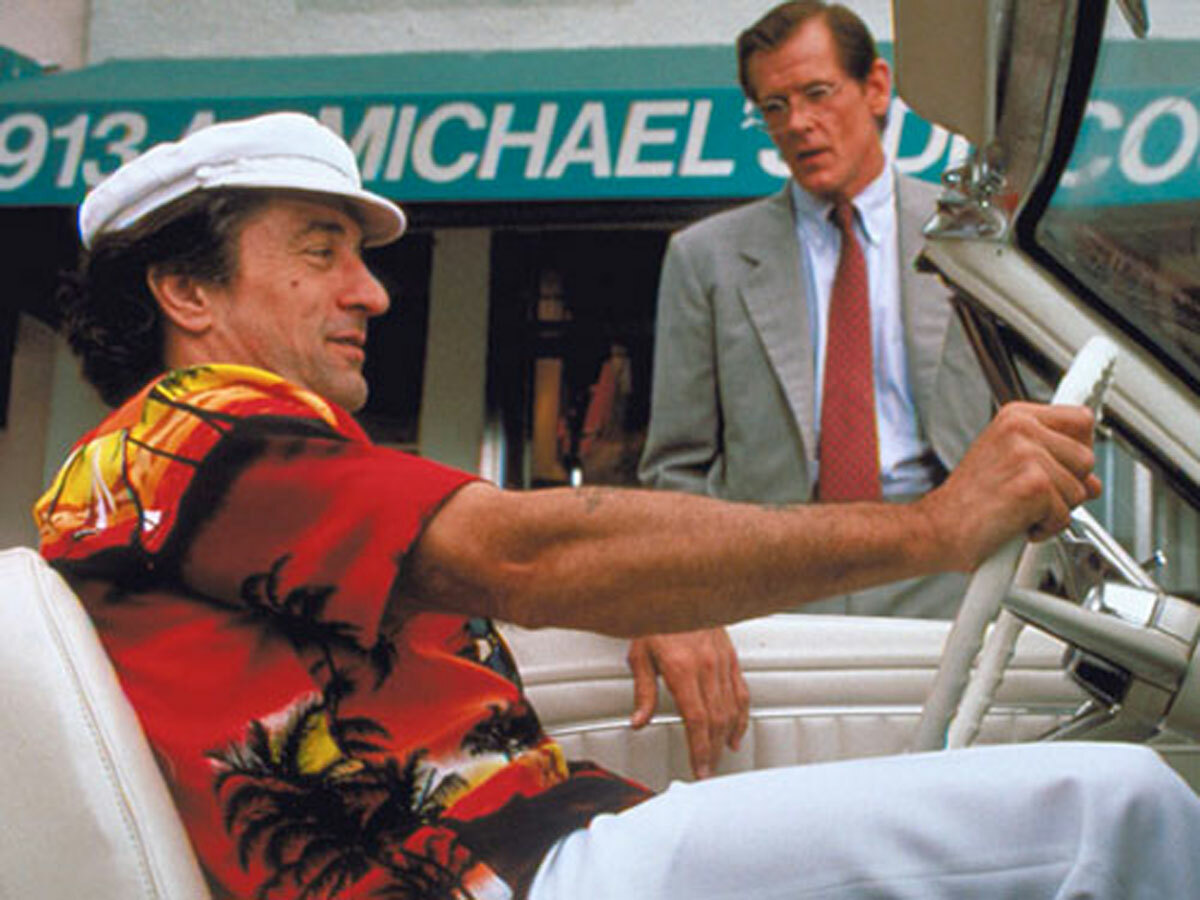
Gregory Peck, Robert Mitchum and Martin Balsam all had roles in the original 1962 Cape Fear, and each got a reprisal cameo in the remake starring Robert De Niro, Nick Nolte and Jessica Lange. The usual boat and storm combo is drilled up for the finale, with a psychopathic rapist, bent on vengeance, thrown in for good measure. Do not file under rom-com.
The Sea Hawk (1940)
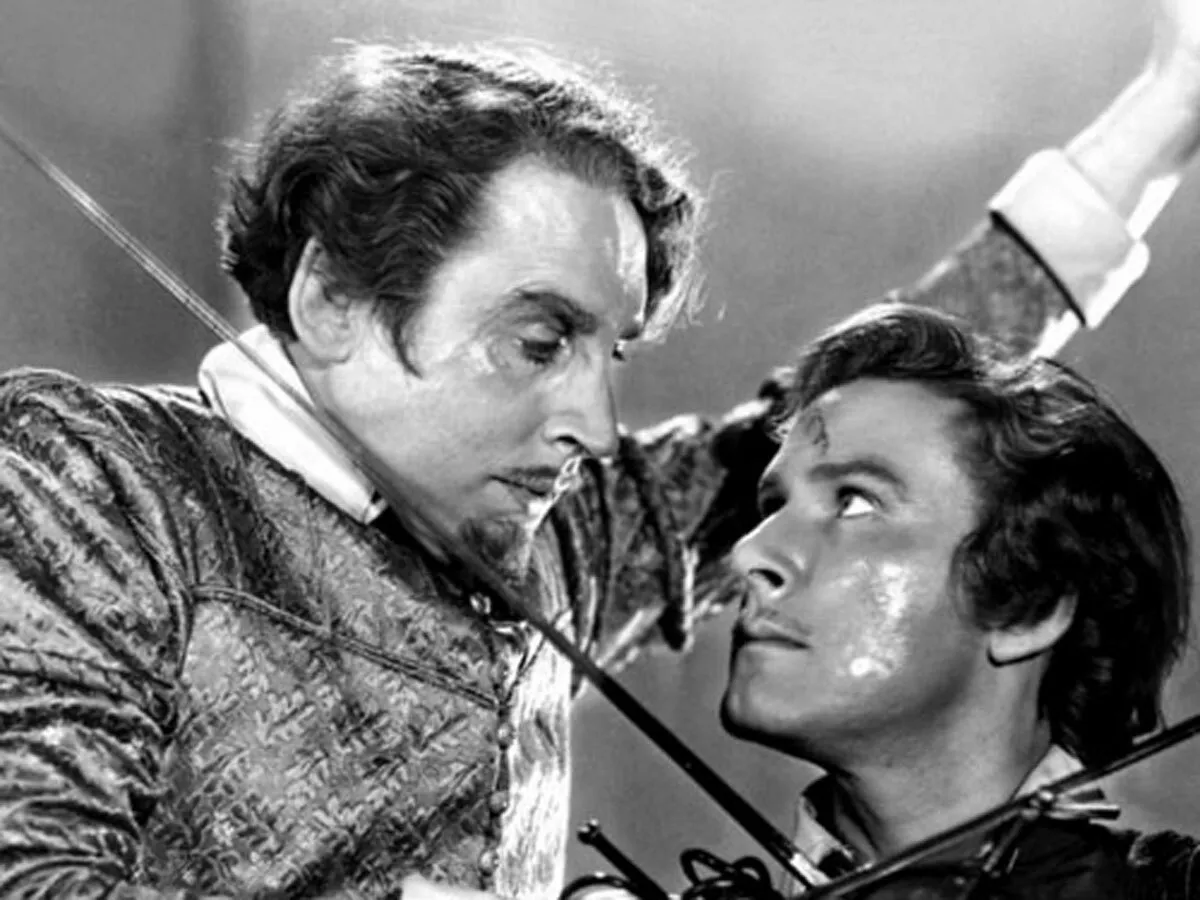
Errol Flynn stars as (guess what?) a privateer. Based around the time of the Spanish Armada, it sees Flynn jacking the Spanish ambassador’s boat and chatting up his wife. Being that it was released during the Second World War, there’s some pretty heavy jingoism going on, but it’s still worth a watch. If you must be a purist, track down the 1924 silent version, which is more faithful to Rafael Sabatini’s novel.
Under Seige (1992)
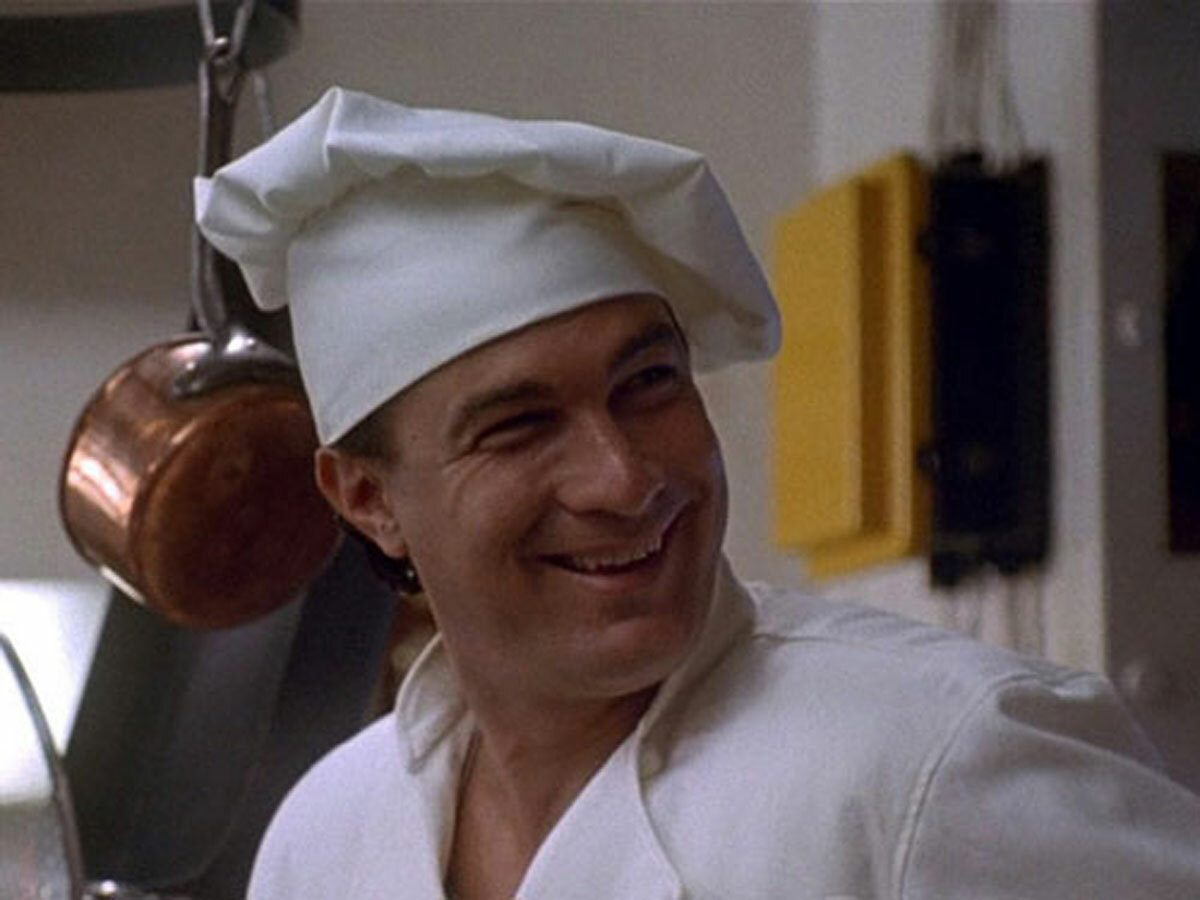
Steven Seagal cooks up a storm in the galley of the USS Missouri when Gary Busey and Tommy Lee Jones try to hijack the boat’s weaponry for sale on the black market. But what the baddies don’t realise is that Seagal is (of course) not really a ship’s cook, but a highly trained former Navy SEAL. Uh-oh. Under Seige was a massive success, and so impressed was Harrison Ford with Andrew Davis’ film, he signed up for the director’s next outing, 1993’s The Fugitive, on the strength of it.
The Old Man and the Sea (1958)
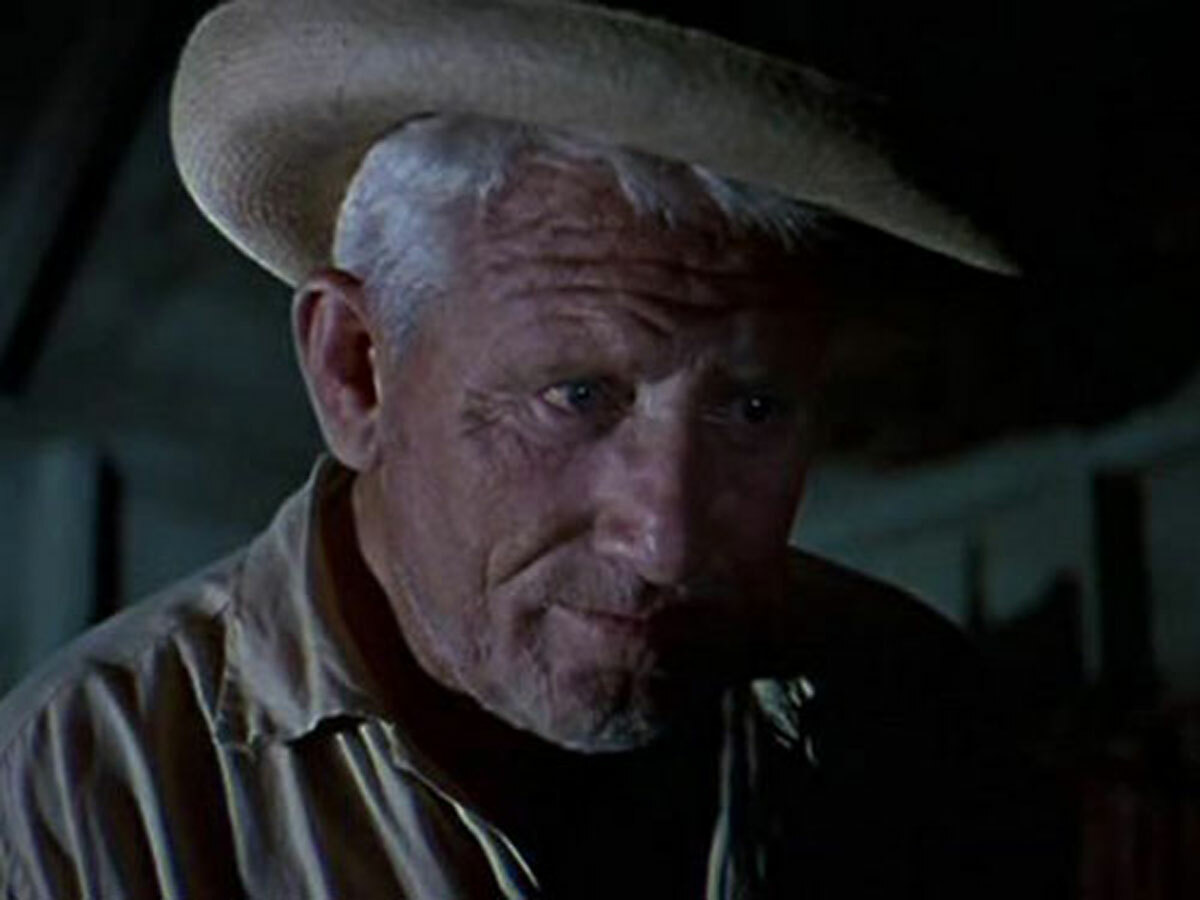
Ernest Hemingway’s novella set sail for the big screen with Spencer Tracy at the helm, a role for which he would pick up an Oscar nomination. The story of a down-on-his-luck fisherman looking for one big catch was brought to life with a pioneering new film technology, the bluescreen. Cutting edge stuff.
Waterworld (1995)
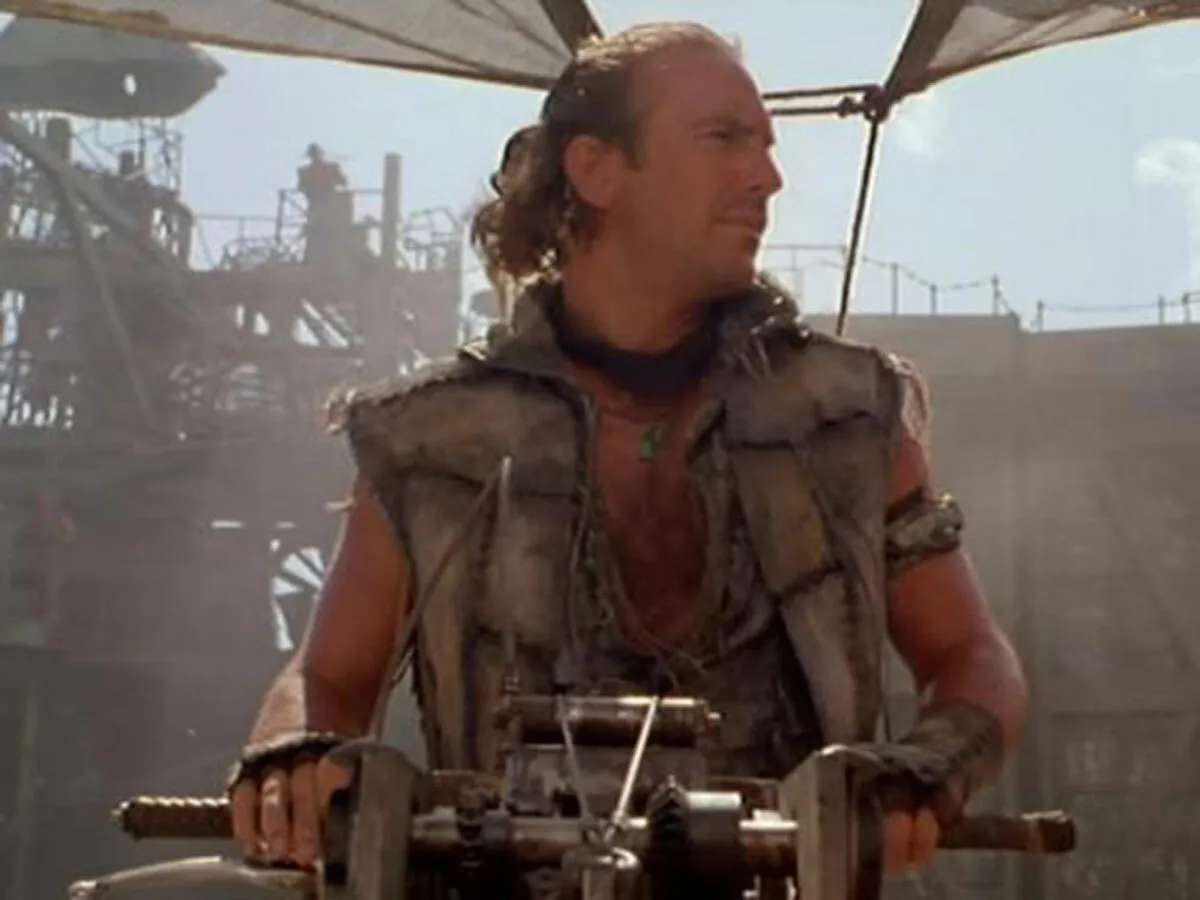
It’s the future and rising sea levels have done away with most of Earth’s land. Enter Kevin Costner on his trimaran to become embroiled in a plot about a missing orphan, pirates called Smokers and the search for Dryland (yes, really). Eventually, Cossie upgrades to a jetski for his assault on the pirates home turf (an optimistically intact Exxon Valdez).
The Caine Mutiny (1954)
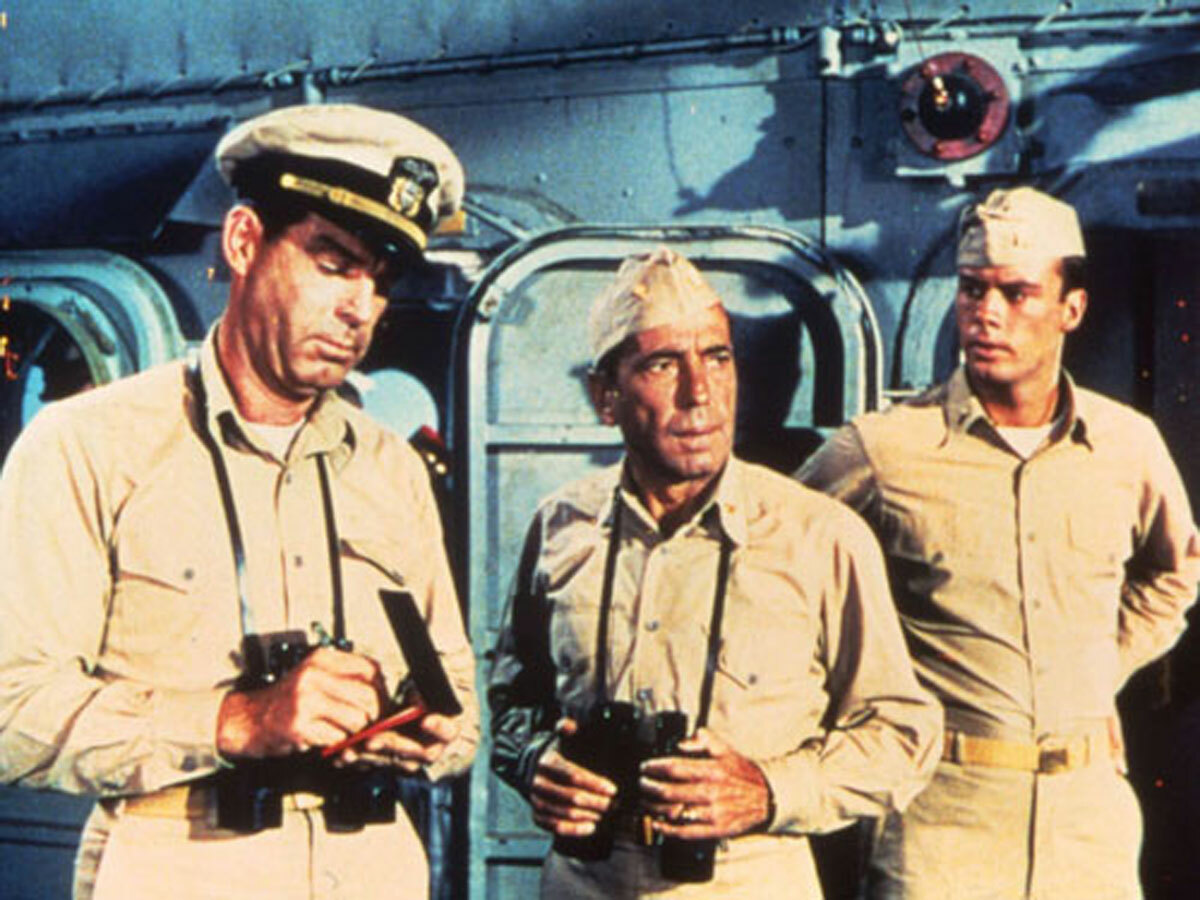
In boat movies, things generally get out of hand for three reasons: adverse weather (The Poseidon Adventure, The Perfect Storm), petty misdemeanours (Mutiny on the Bounty, Knife in the Water) and war (Master and Commander, The Hunt for Red October, The African Queen). In The Caine Mutiny, it’s all three – with a violent storm, the theft of some strawberries and enemy fire conspiring against the crew’s brief. Throw in an ace performance form Humphrey Bogart, and there’s little reason not to navigate towards the play button.
Dead Calm (1989)
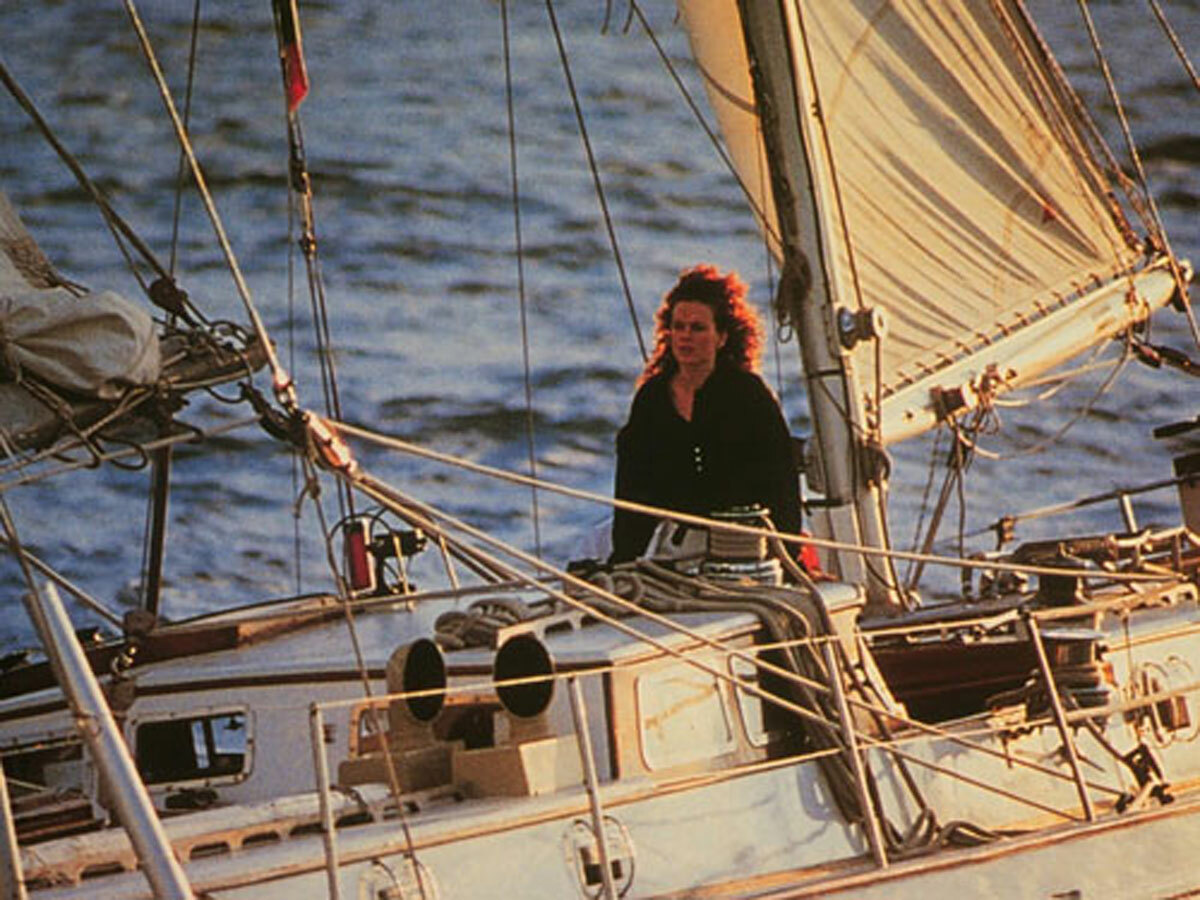
The plot of this Aussie thriller (which also made our list of the 25 best Australian movies ever) has more tacks than the Sydney-Hobart boat race. An idyllic yachting getaway runs aground when a homicidal maniac (Billy Zane) joins the party of two (Sam Neill and Nicole Kidman). Cue the suspenseful action, including novel uses of harpoon and flare guns.
White Squall (1996)
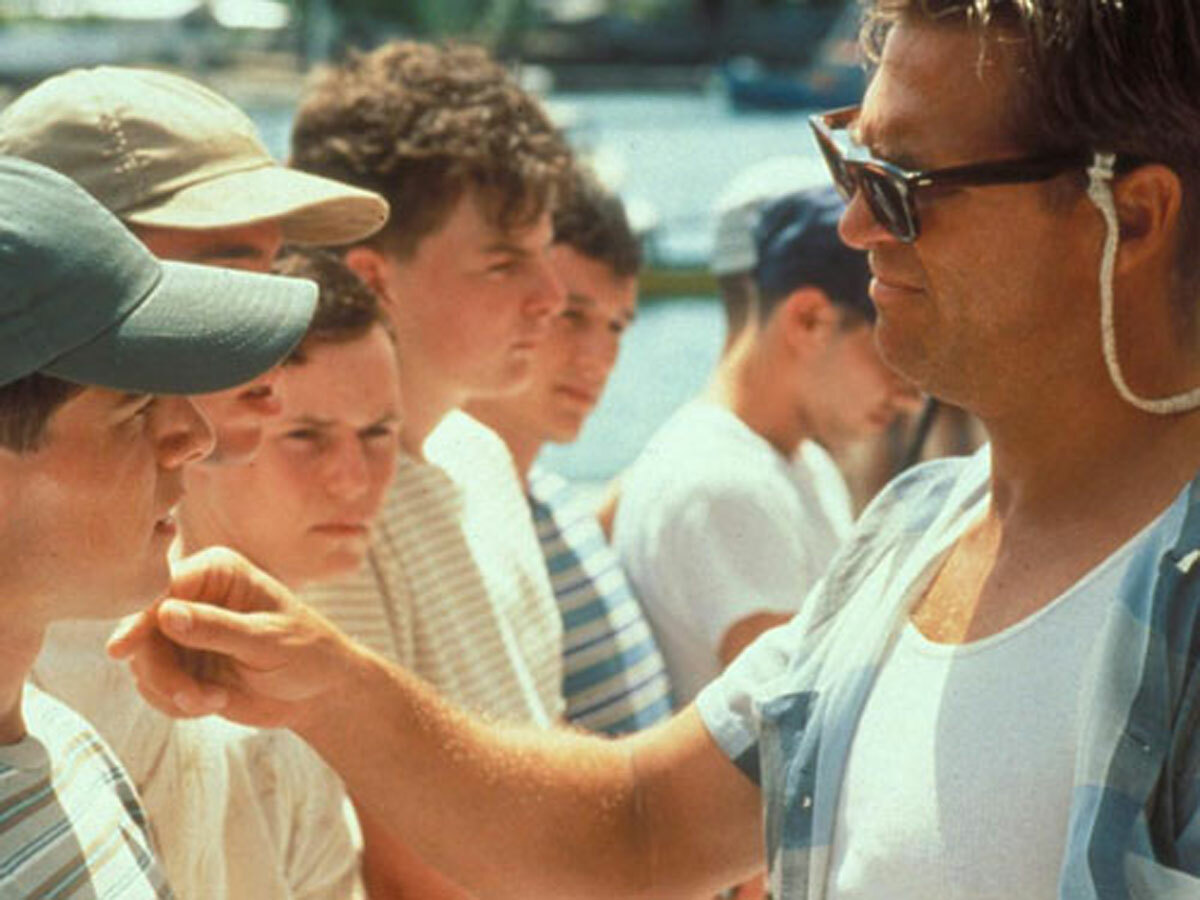
What could possibly go wrong on a school sailing trip? Ridley Scott set out to discover in this based-on-a-true-story retelling of the Albatross, which sank in 1961. Jeff Bridges is the teacher who trains the boys in the ways of the waves. The white squall of the title refers to a sudden sea storm that appears without the usual foreboding clouds.
Lifeboat (1944)
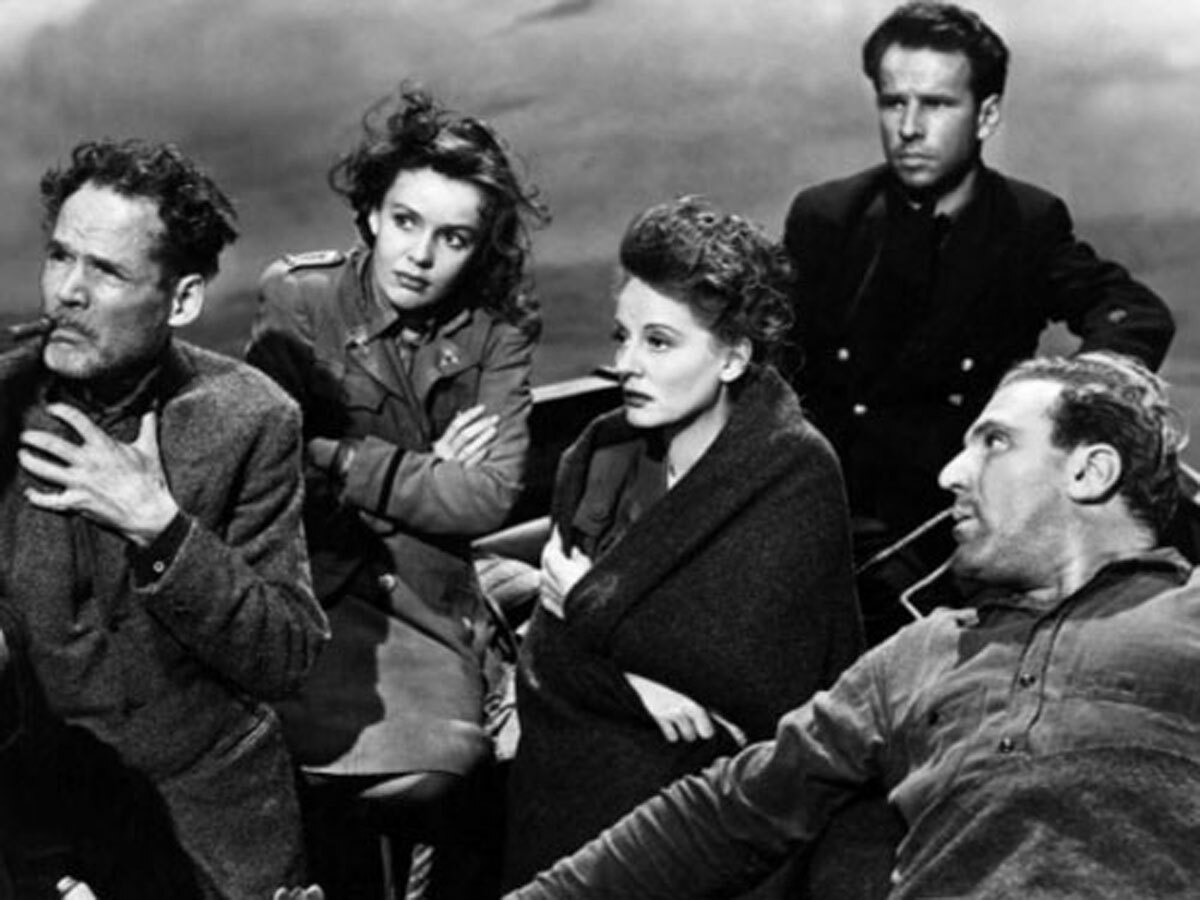
If there was one thing Alfred Hitchcock liked, it was having a small stage (Rope, Dial M for Murder, Rear Window). For Lifeboat, that stage was the particularly cramped titular escape vessel. It all starts off genially enough, but needless to say tempers wear thin when there are limited rations and even more limited chance of rescue. If there was another thing Hitchcock liked, it was a twist. But we wouldn’t like to spoil the ending.



